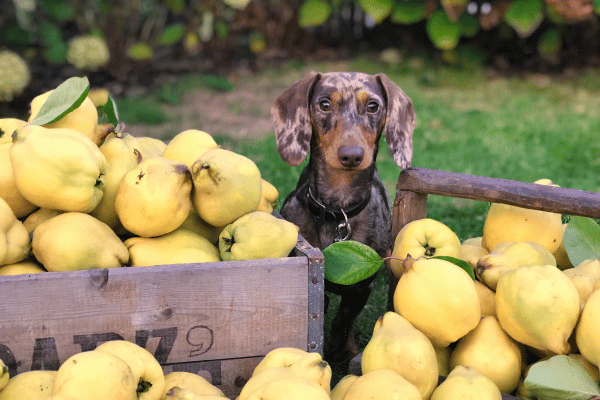Understanding nutritional enrichment for pets is crucial. With over 25 years in pet care, we emphasize diverse food textures and flavors. This approach ensures a balanced diet, catering to the unique needs of dogs and cats, enhancing their health and well-being.
Variety: Key to Pet Nutritional Enrichment

Introducing varied textures in your pet’s diet can significantly impact their well-being. Crunchy kibbles, for instance, promote dental health by reducing tartar. Soft, moist foods, on the other hand, are easier to chew and can be beneficial for older pets. This variety not only caters to their nutritional needs but also keeps mealtime interesting, encouraging better eating habits.
Incorporating a range of flavors into your pet’s diet does more than just satisfy their taste buds. It’s a journey of discovery, offering them a spectrum of sensory experiences. Each new flavor can introduce essential nutrients, contributing to a balanced diet. Moreover, this diversity can prevent food boredom, ensuring your pets remain excited about their meals, which is crucial for their overall health.
While diversity in diet is important, the ultimate aim is achieving nutritional balance. Every meal should be a carefully considered mix of proteins, fats, carbohydrates, vitamins, and minerals. Tailoring this balance to your pet’s specific life stage, lifestyle, and health needs is key. Regular consultations with a ‘cat friendly’ veterinarian can guide you in crafting a diet that supports your pet’s health and vitality.
Enhancing Health with Dietary Diversity
Dietary fiber plays a pivotal role in pet nutrition, aiding in digestive health and weight management. Incorporating fibrous foods like pumpkin or beet pulp can improve stool quality and promote satiety, reducing overeating tendencies. This aspect of nutritional enrichment for pets ensures a balanced gut flora, contributing to overall well-being and preventing common digestive issues.
Hydration is a key component of nutritional enrichment for pets. Wet foods and broths not only diversify the diet’s texture and flavor but also increase water intake, crucial for kidney function and overall health. Encouraging pets to consume moist foods can prevent dehydration, especially in those prone to neglecting their water bowls. This strategy enhances nutrient absorption and supports a healthy urinary tract.
Closely monitoring your pet’s food intake is essential in providing a diverse yet balanced diet. Adjusting portions according to activity level and health status prevents obesity and related health issues. Nutritional enrichment for pets involves not just variety but also moderation, ensuring they receive all necessary nutrients without excess calories. Regular veterinary check-ups can help tailor the diet to your pet’s evolving needs, promoting lifelong health.
Nutritional Enrichment for Pets Through Diet

Tailoring diets to meet individual pet needs is crucial in nutritional enrichment for pets. Factors like breed, age, and health conditions dictate dietary requirements. For instance, high-energy breeds may benefit from protein-rich foods, while older pets might need lower-calorie diets. Personalizing meals ensures each pet receives the right balance of nutrients, enhancing their health and longevity.
Incorporating seasonal foods into your pet’s diet can offer natural nutritional enrichment. Seasonal fruits and vegetables provide fresh, varied nutrients, adapting to your pet’s changing needs throughout the year. This approach supports a sustainable feeding practice, ensuring pets enjoy a wide range of fresh, high-quality ingredients that contribute to their overall health and well-being.
While a diverse diet is foundational, supplements can further enhance your pet’s nutritional profile. Essential fatty acids, probiotics, and specific vitamins tailored to your pet’s needs can address dietary gaps. However, it’s important to consult with a veterinarian before introducing supplements to ensure they complement the diet without causing imbalances, truly enriching your pet’s nutritional intake.
Tailoring Diets for Optimal Pet Wellness
Deciphering pet food labels is key to nutritional enrichment for pets. Understanding ingredients and nutritional values ensures you’re providing a balanced diet. Look for high-quality protein sources as the first ingredient and avoid unnecessary fillers. This knowledge empowers pet owners to make informed choices, selecting foods that contribute to their pets’ health, energy levels, and longevity.
Antioxidants play a vital role in maintaining pet health, offering protection against cellular damage and boosting the immune system. Incorporating foods rich in antioxidants, such as blueberries and carrots, can significantly contribute to your pet’s nutritional enrichment. These nutrients combat free radicals, promoting vitality and reducing the risk of chronic diseases, making them a crucial component of a well-rounded pet diet.
Interactive feeding strategies can enhance nutritional enrichment for pets by turning meal times into stimulating activities. Using puzzle feeders or hiding food for pets to find encourages natural foraging behaviors, promoting mental stimulation and physical activity. This approach not only enriches their diet experience but also contributes to their overall well-being, preventing boredom and encouraging a healthy relationship with food.
Promoting Longevity Through Balanced Pet Diets
Establishing regular meal times is crucial for nutritional enrichment for pets. Consistency aids in regulating metabolism and digestion, contributing to overall health. Scheduled feeding not only helps in managing weight by preventing overeating but also reinforces a routine, offering pets a sense of security. Adhering to a structured feeding schedule supports dietary discipline, ensuring pets receive the right amount of nutrition at optimal times.
When it comes to pet food, quality significantly outweighs quantity. Investing in premium foods that offer comprehensive nutritional profiles ensures pets receive essential nutrients without excessive fillers. High-quality ingredients contribute to better health outcomes, reducing the risk of obesity and related diseases. Nutritional enrichment for pets hinges on selecting diets that provide dense nutrition, catering to their specific health needs and lifestyle.
Incorporating fresh foods into pet diets can greatly enhance nutritional enrichment. Fresh vegetables and lean meats offer natural sources of vitamins, minerals, and proteins, contributing to a more vibrant and diverse diet. This approach supports a holistic feeding regime, complementing traditional pet foods with nutrient-rich options. Integrating fresh foods not only boosts nutritional intake but also introduces a variety of flavors and textures, enriching the overall feeding experience.
Integrating Behavioral Enrichment in Feeding Practices

A varied diet can significantly impact a pet’s behavior, providing mental stimulation and reducing boredom. Introducing different textures and flavors keeps pets engaged and curious about their meals, promoting a positive feeding experience. This variety can also mitigate picky eating habits, encouraging pets to be more adaptable and less resistant to dietary changes. Nutritional enrichment for pets, therefore, extends beyond physical health, contributing to their emotional and psychological well-being.
Omega-3 fatty acids are essential in promoting brain health and reducing inflammation in pets. Incorporating sources of Omega-3, such as fish oil or flaxseed, into your pet’s diet supports cognitive function, especially in aging pets. This nutritional strategy not only contributes to a shiny coat and healthy skin but also plays a crucial role in maintaining joint health and mobility, enhancing the overall quality of life for pets.
Incorporating prebiotics and probiotics into pet diets supports digestive health, a cornerstone of nutritional enrichment. These beneficial bacteria aid in maintaining a healthy gut flora, improving nutrient absorption, and bolstering the immune system. Including foods rich in prebiotics and probiotics can help prevent gastrointestinal issues, ensuring pets maintain a healthy weight and vitality. This proactive approach to diet underscores the importance of gut health in overall pet wellness.
Essential Vitamins for Comprehensive Pet Health
Vitamin A is pivotal for pet health, supporting vision, growth, and immune function. Incorporating foods rich in Vitamin A, like carrots and spinach, into your pet’s diet can significantly contribute to their overall well-being. This nutrient is essential for maintaining healthy skin and coat, highlighting the importance of a balanced diet in providing comprehensive nutritional enrichment for pets, ensuring they lead vibrant, healthy lives.
Vitamin D plays a crucial role in pet health, regulating calcium and phosphorus levels, which are vital for bone health. Ensuring pets have adequate Vitamin D, through diet or controlled sun exposure, prevents bone disorders and supports muscular function. This aspect of nutritional enrichment for pets underscores the need for a well-rounded diet, emphasizing the importance of vitamins in maintaining optimal health and preventing nutritional deficiencies.
B Vitamins are essential in pet diets, acting as catalysts for energy production and efficient metabolism. Foods rich in B Vitamins, such as animal proteins and whole grains, support various bodily functions, including brain health and red blood cell formation. Integrating these nutrients into your pet’s diet enhances nutritional enrichment, ensuring pets have the energy and vitality needed for daily activities, contributing to their overall health and happiness.
Nutritional Enrichment for Pets Enhances Lives
Minerals like calcium and phosphorus are fundamental in a pet’s diet, ensuring strong bones and teeth. Including mineral-rich foods supports not only skeletal integrity but also vital bodily functions. This aspect of nutritional enrichment for pets is crucial, especially as they age. Adequate mineral intake prevents common health issues, underscoring the importance of a balanced diet in maintaining overall pet wellness and longevity.
Proper hydration is essential for pets, often overlooked in discussions about nutrition. Water facilitates digestion, nutrient absorption, and waste elimination. Encouraging pets to drink more, possibly by adding wet foods to their diet, promotes kidney health and prevents dehydration. This simple yet effective strategy is a cornerstone of nutritional enrichment for pets, highlighting the role of water in maintaining health and preventing dietary imbalances.
Fiber is a crucial component of a pet’s diet, aiding in digestive health and weight management. A balanced intake of fiber helps regulate bowel movements and contributes to satiety, preventing overeating. Including appropriate fiber sources, such as vegetables and whole grains, in pet diets is a key aspect of nutritional enrichment, supporting gut health and ensuring pets maintain a healthy weight, crucial for overall vitality and well-being.
Balanced Diets Foster Happy, Healthy Pets

Proteins are the building blocks of a healthy pet diet, essential for growth, repair, and overall vitality. High-quality protein sources, such as chicken, fish, and beef, support muscle development and maintenance. Ensuring pets receive adequate protein is a cornerstone of nutritional enrichment, contributing to their strength and energy levels. This dietary focus helps pets lead active, fulfilling lives, underlining the importance of balanced nutrition for their well-being.
Carbohydrates play a vital role in providing pets with the energy needed for their daily activities. Whole grains and vegetables offer healthy carbs along with essential nutrients. Including these in a pet’s diet supports sustained energy release, aiding in play and exploration. This balance in nutritional enrichment ensures pets have the stamina for physical activities, promoting a healthy lifestyle and preventing obesity, a growing concern in pet health.
Fats are crucial in a pet’s diet, serving as a dense energy source and supporting cell function. Omega-3 and Omega-6 fatty acids, found in fish oil and flaxseed, promote healthy skin and a shiny coat. Balancing fat intake is key to nutritional enrichment, providing pets with essential fatty acids that support cognitive function and reduce inflammation. This dietary component enhances overall health, contributing to a pet’s happiness and longevity.
Essential Nutrients Ensure Pet Health and Vitality
Antioxidants are vital in combating oxidative stress and supporting immune health in pets. Foods rich in antioxidants, such as berries and leafy greens, can prevent chronic diseases and promote longevity. Integrating these into your pet’s diet as part of nutritional enrichment ensures they benefit from natural defenses against aging and illness, highlighting the role of a well-rounded diet in maintaining optimal health and enhancing the quality of life for pets.
Calcium is essential for strong bones and teeth, particularly in growing pets and breeds prone to bone issues. Including calcium-rich foods like dairy products and certain vegetables supports skeletal health and prevents bone disorders. This focus on calcium intake is a key aspect of nutritional enrichment for pets, ensuring they have the foundation for robust physical health, enabling them to lead active, playful lives.
Electrolytes, such as sodium, potassium, and chloride, are crucial for maintaining hydration and nerve function in pets. They help regulate fluid balance and are essential for muscle function. Ensuring pets have access to fresh water and a balanced diet supports electrolyte balance, a fundamental part of nutritional enrichment that keeps pets hydrated and healthy, particularly during hot weather or after exercise, safeguarding their well-being.
In summary, Embracing Comprehensive Nutritional Enrichment for Pets
Embracing nutritional enrichment for pets transcends mere feeding; it’s about fostering a lifestyle that ensures our furry companions not only survive but thrive. The journey through diverse diets, rich in proteins, fats, carbohydrates, vitamins, and minerals, underscores the essence of holistic pet care. By integrating fresh foods, high-quality commercial diets, and essential supplements, we cater to the multifaceted needs of pets, enhancing their physical, mental, and emotional well-being.
The collaboration between pet owners and veterinary professionals is pivotal in tailoring diets that resonate with individual pet needs, considering factors like age, breed, and health status. This partnership facilitates the crafting of diets that bolster immunity, support growth and maintenance, and prevent nutritional deficiencies, paving the way for a vibrant, healthy life for our pets.
As we navigate the complexities of pet nutrition, let’s commit to continuous learning and adaptation, ensuring our pets enjoy the richness of a well-rounded diet. I encourage you to engage with your veterinarian, explore new feeding strategies, and share your experiences in the comments below. Together, we can create a community dedicated to the nutritional enrichment of our beloved pets, ensuring they lead happy, healthy lives.
Reference: For more insights on pet nutrition, visit American Veterinary Medical Association.
II. FAQs about environmental enrichment
- How do you enrich a cat's indoor environment?Enrich an indoor environment by providing window perches for bird watching, interactive toys, and engaging in daily play sessions to mimic hunting behaviors.
- What are your cat's environmental needs?Cats need safe and comfortable resting areas, opportunities for play and exercise, scratching posts, and access to clean water and a varied diet.
- What are the benefits of environmental enrichment for animals?Benefits include improved physical health, reduced stress and anxiety, enhanced mental stimulation, and prevention of behavioral problems.
- What effect does an enriched environment have on animals?An enriched environment promotes overall well-being, encourages natural behaviors, and can significantly improve an animal's quality of life.
- What is environmental enrichment and why is it important?Environmental enrichment is crucial for the well-being of animals, providing mental and physical stimulation that mimics their natural habitat and behaviors, leading to healthier, happier pets.
- Why do dogs need environmental enrichment?Dogs require environmental enrichment to prevent boredom, reduce stress, encourage natural behaviors, and maintain physical and mental health.
- How did environmental enrichment come about?Environmental enrichment evolved from the recognition of animals' complex needs in captivity, leading to practices that enhance their living conditions and well-being.
- What does environmental enrichment mean?Environmental enrichment means improving an animal's living environment to support their natural behaviors and improve their quality of life.
- What are the 5 types of environmental enrichment?The five types include sensory, nutritional, physical, cognitive, and social enrichment, each addressing different aspects of an animal's well-being.
- How can I prevent my cat from getting bored and causing mischief at home?To keep your cat entertained and prevent boredom, consider introducing interactive toys and puzzles that stimulate their natural hunting instincts, such as puzzle feeders. Providing cat trees and climbing shelves can also help by giving them a space to climb and observe their surroundings. Window perches offer a view of the outdoors, which can be incredibly entertaining for them. Regular playtime is crucial; using toys that mimic prey can engage their hunting instincts and provide both physical and mental stimulation. Additionally, exploring new environments, having companionship, training them to do tricks, rotating their toys regularly, and even simple solutions like cardboard boxes can keep them engaged. For cats that enjoy the outdoors, consider safe outdoor enclosures or introduce outdoor elements indoors, like safe plants or a bird feeder near a window. These activities not only prevent boredom but also keep your cat healthy and happy.

Join Dan Morgan at dwfocus.com, your hub for ‘4 paws and owners’ wisdom! Explore a world where pet care meets expert insights, crafted by Dan, a seasoned vet with a heart for animals. Engage with stories, tips, and advice that every pet owner needs. From playful pups to graceful cats, Dan Morgan guides you through the joys and challenges of pet parenting. Embrace your love for pets with Dan’s expert guidance on dwfocus.com. #4PawsAndOwners #DanMorganPetExpert #dwfocus






